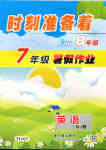题目内容
On a trip to California, my family stopped for lunch. As we walked toward the entrance to the restaurant, a man, with a beard and dirty hair, jumped up from a bench outside the restaurant and opened the door for us.Regardless of his , he greeted us in a friendly way.
Once inside, my daughters whispered, "Mom, he . " After we ordered our lunch, I explained, telling the kids to look the dirt. We then watched other customers approach the restaurant but many him. Seeing this rudeness truly upset me. The day I became a mother, I had determined to set a good to my children. Yet sometimes when things didn't go right, being a good example was . When our meal arrived, I realized I had left the car-sick pills in the truck.With the windiest trip ahead, the kids needed them, so I myself from the meal and went to get them.
Just then, the "doorman" was opening the door for a couple. They rushed past him without even acknowledging his . Letting them in first, I said a loud "thank you" to him as I .
When I returned, we talked a bit. He said he was not allowed inside he purchased food. I went back and told my family his .Then I asked our waitress to add one soup and sandwich.
The kids looked as we had already eaten, but when I said the order was for the "doorman", they smiled. When it was time to our trip, I found the "doorman" enjoying his meal. Upon seeing me, he stood up and thanked me heartily. He then out his hand for a handshake and I gratefully accepted. I suddenly the tears in his eyes—tears of gratitude. What happened next drew great astonishment: I gave the " doorman" a . He pulled away, with tears down his face.
Back in truck, I fell into deep thought.While we can't choose many things in life, we can choose when to show gratitude.I said thanks to a man who had held open a door for me, and also said thanks for that to teach my children by example.
1.A.messy B.clean C.pretty D.bright
2.A.service B.state C.appearance D.attitude
3.A.smokes B.smells C.sighs D.smiles
4.A.around B.over C.beyond D.into
5.A.ignored B.hated C.missed D.refused
6.A.target B.rule C.record D.example
7.A.stressful B.accessible C.awkward D.tough
8.A.excused B.refreshed C.prevented D.forgave
9.A.company B.presence C.challenge D.attack
10.A.quitted B.marched C.exited D.approached
11.A.before B.unless C.though D.since
12.A.story B.deed C.desire D.demand
13.A.concerned B.puzzled C.excited D.bored
14.A.make B.start C.continue D.take
15.A.waved B.washed C.raised D.reached
16.A.watched B.inspected C.witnessed D.noticed
17.A.hug B.nod C.lift D.strike
18.A.slipping B.rushing C.rolling D.breaking
19.A.firmly B.simply C.constantly D.politely
20.A.journey B. wisdom C. community D.opportunity
1.A
2.C
3.B
4.C
5.A
6.D
7.D
8.A
9.B
10.C
11.B
12.A
13.B
14.C
15.D
16.D
17.A
18.C
19.B
20.D
【解析】
试题分析:文章讲述了我和家人在旅行途中下车去餐馆吃饭,在我们进餐馆的时候,一位又脏又邋遢的“看门人”为我们看了门,我的孩子们嫌老人脏,进餐馆的其他人对他视而不见,而我不但给他点了份饭,还给了他一个拥抱,“看门人”非常感动,眼含热泪。而我从有了baby的那天起,就决定给我的孩子们一个好的榜样,所以我很和蔼的对待那位看门人,给孩子做了一个很好的榜样。
1.A考查形容词的词义。句意为:在去加利福尼亚的旅途中,我们全家停下来去吃午餐,正当我们向前通过餐厅的入口时,一个胡子凌乱头发脏脏的男子从餐馆外面的长凳上跳了起来,为我们打开了门。messy adj凌乱的,散乱的,肮脏的;clean adj 干净的,清洁的;pretty adj漂亮的,可爱的;bright adj明亮的,鲜明的。故答案应为A.
2.C考查名词的词义。句意为:他不顾及他的外表,很友好的给我们打招呼,问候我们。service n服务,服侍;state n状态,州,国家;appearance n外表,外貌;attitude n 态度,看法。故答案应C。
3.B 考查动词的词义。句意为:一到里面,我的小女儿就小声对我说:“他的身上发着臭味”.smokes vt 吸烟;smells vt嗅,闻,臭味,闻起来有臭味; sighs vt叹息;smiles vt微笑。故答案应为B。
4.C 考查介词的意思。句意为:我们点了午餐之后,我向孩子解释让孩子要超越污垢,意思就是说不要盯着这些污点,要看实质的事情。around prep 周围,环绕;over prep 在---之上,结束;beyond 超越,超过;into prep在—里面。超越表面的东西,故答案应为C。
5.A 考查动词的含义。句意为:我们看了一下进餐馆的其他的顾客,但是许多人都没有理他。ignore vt忽略,忽视;hate vt憎恨,讨厌;miss vt思念,错过;refuse vt拒绝。故答案应为A。
6.D考查名词的词义。句意为:看到这些粗鲁的行为使我很不安,从我做母亲的那一天,我就决定要为我的女儿做一个好的榜样。target n目标,靶子;rule n规则,规章;record n记录;example n例子,榜样。故答案应为D。
7.D 考查形容词的意思。句意为:然而有时候,事情发展并不总是顺利的,做一个好的榜样是很难的。stressful adj紧张的,有压力的;accessible adj易接近的,可进入的;awkward adj尴尬的,笨拙的;tough adj强硬的,困难的。故答案应为D。
8.A考查动词的意思。当我们的饭来的时候,我才意识到,我把坐车吃的药片忘车里了,在往前充
满大风的旅行中,孩子需要他们,因此我就找借口去取回了药。excuse vt托辞,借口;refresh vt使恢复,
使更新;prevent vt阻止,阻碍;forgive vt宽恕,原谅。故答案应为A。
9.B 考查名词的词义。句意为:正在那时,“看门人”正为一对夫妇打开了门,他们迅速的从他身
边过去了,甚至没有意识到他的存在。company n公司,同伴;presence n存在,出席,参加;challenge n
挑战,attack n袭击,攻击。故答案应为B。
10.C 考查动词的词义。句意为:让他们先进来,我大声的向他说谢谢,当我出去的时候。quit vt停止,叫停;march vt 前进,进军,行进,游行;exit vt出口,出去; approach vt 接近。故答案为C。
11.B考查连词的词义。句意为:当我回来的时候,我们聊了几句,他说,他不被允许进入餐厅,除非他买吃的。before conj在---之前;unless conj除非;though conj 虽然,尽管;since conj既然。故答案应为B。
12.A 考查名词词义。句意为:我回去以后,把他的故事告诉给了我的家庭.我又服务员加了一份汤
和三明治。story n故事;deed n行动,功绩;desire n欲望,要求;demand n要求,需求。故答案应为A。
13.B考查形容词词义。句意为:孩子们看上去有些困惑,因为我们已经吃完了。但当我说这份订单是给那位看门人的时候,他们笑了。concerned adj 有关的,关心的;puzzled adj困惑的,迷茫的;excited adj激动的,兴奋的;bored adj无聊的,无趣的。故答案应为B。
【小题 14】C 考查动词的词义。句意为:到我们继续旅行的时间了,我发现那位“看门人”正在享受着他的大餐。make vt 制造,使得;start vt 开始,着手;continue vt 继续;take vt带走,耗费。旅程不是开始而是继续,故答案为C。
14.D 考查动词的意思。句意为:当他看见我的时候,他站起来真心的感谢了我。他接着伸出他的手和我握手,我很感激的接受了(和他握手)。wave vt 波动,起伏;wash vt洗涤,洗刷;raise vt举起,升起;reach vt延伸,伸出手。故答案应为D。
15.D 考查动词的意思。句意为:我突然注意到了他眼里的泪水,那是感激的泪水。watch vt 观察,
注视;inspect vt检查,视查;witnessed vt 目睹;noticed vt 注意到。这里不是观察,应是注意到了这一点,
故答案应为D。
16.A 考查名词的意思。句意为:接下来的事情更让人吃惊,我给了这个“看门人”一个拥抱。 hug
n拥抱;nod n点头;lift n电梯,举起;strike n 摆工,打击,殴打。故答案应为A.
17.C考查动词的意思。句意为:他离开了,热泪滚下了他的脸。slipping vt滑动; rushing vt猛冲,
催促;rolling vt滚落,旋转;breaking vt 破坏。眼泪应是顺着他的脸滚落了下来,故答案应为C。
18.B考查形容词的含义。句意为:回到了车上,我陷入到了沉思之中,尽管在生活中,我们不能
选择许多事情,但我们可以选择我们能够表示感谢的一刻。我向那位仅仅为我们开门的看门人说了声谢谢。
firmly adv坚定地,坚决地;simply adv简单地; constantly adv 不断地;politely adv有礼貌地。故答案应为
B。
19.D 考查代词的用法。句意为:也为这个能够教育孩子的机会说声谢谢。journey n 旅行,旅程;wisdom n 聪明,明智;community n社区,群落;opportunity n机会,机遇。故答案应为D。
【考点】考查故事类文章的理解及词汇辨析。

 时刻准备着暑假作业原子能出版社系列答案
时刻准备着暑假作业原子能出版社系列答案